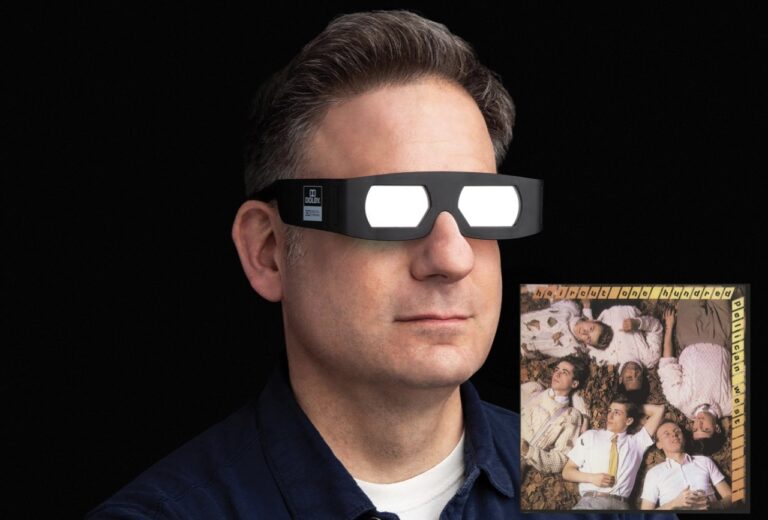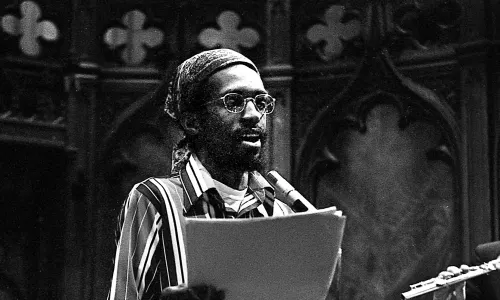Oscar on the Oscars: The Academy Tries to Find a New Normal

The 94th Academy Awards are scheduled for Sunday, March 27, and, two years into the COVID-19 pandemic, are awkwardly trying to adjust back to normal. From the return of a host (or three) to the shortening of the ceremony, the Academy of Motion Picture Arts and Sciences is trying to hold the place of the Oscars in the minds of the filmgoing public.
Last year’s charming but unusual ceremony, celebrating a largely direct-to-streaming slate of 2020 films, saw all-time low ratings for the Oscars. With the pandemic raging and most movie theaters still shuttered, most people didn’t pay much attention to the nominees, and the box office receipts showed it. While the slate of Best Picture nominees at the 92nd Oscars grossed a combined $2 billion, last year’s brought in a mere $35 million, with the winner, “Nomadland,” becoming the lowest-grossing Best Picture winner in the history of the Oscars. However, this year’s nominees, seem to be bouncing back, with the ten Best Picture nominations having brought in a combined $544 million as of the time of this article’s publication, even though three of the nominees were released straight to streaming with no stated box office returns.
Leading the pack of the nominees is “The Power of the Dog,” a psychological slow-burn Western directed by Jane Campion, which received 12 nominations. With her nomination for Best Director, Campion became the first woman director to be nominated more than once in the category, having previously been up for the award with 1993’s “The Piano.” Close behind is the science fiction epic “Dune,” directed by Denis Villeneuve, which received 10 nominations. “Belfast,” a coming-of-age drama inspired by director Kenneth Branagh’s childhood experiences of the Troubles in Northern Ireland, received seven nominations.
Director Steven Spielberg’s adaptation of the beloved musical “West Side Story” also got seven nods. Spielberg became the first director to be nominated for Best Director in six different decades: 1977’s “Close Encounters of the Third Kind,” 1981’s “Raiders of the Lost Ark” and 1982’s “E.T. the Extra-Terrestrial,” 1993’s “Schindler’s List” and 1998’s “Saving Private Ryan,” 2005’s “Munich,” 2012’s “Lincoln,” and now 2021’s “West Side Story.”
For the first time in over a decade, ten films were nominated for Best Picture, the most allowed by the category. Nominees were capped at five from 1945 to 2008. In addition to the four previously listed, this year’s nominees represent an exciting cross-section of contemporary films: “CODA,” a coming of age film directed by Sian Heder about the titular group, Children of Deaf Adults; “Don’t Look Up,” an apocalyptic dark comedy directed by Adam McKay; “Drive My Car,” the first Japanese film nominated for Best Picture and a contemplative and mournful drama directed by Ryûsuke Hamaguchi; “King Richard,” a biopic about Richard Williams, father to tennis legends Venus and Serena Williams, directed by Reinaldo Marcus Green; “Licorice Pizza,” a coming of age story set in 1970s Los Angeles directed by Paul Thomas Anderson; and “Nightmare Alley,” a psychological noir thriller directed by Guillermo del Toro.
Last year’s Oscars saw a group of somewhat lower-profile nominees, with the work of multiple first-time directors nominated for Best Picture. This year though, the presence of such familiar names as Spielberg and Anderson and recent favorites like McKay and del Toro prove that, though the pandemic has not yet receded, Hollywood is back in full swing.
In the vein of getting things back to normal, this year’s Oscars ceremony will also be the first in four years to feature hosts. Though hosts were an Oscars tradition for decades, the 91st Academy Awards in 2019 went hostless after their initially selected host, Kevin Hart, resigned after facing public controversy over homophobic jokes. The following two years, the Academy opted to continue fully hostless as a potential way to streamline the famously lengthy ceremony. This year, however, rumors of the Oscars staying hostless were quashed with the announcement that the ceremony would have not just one host but three: Regina Hall, Amy Schumer, and Wanda Sykes. Time will tell if this proves to be a shot of energy for the awards or if three becomes a crowd.
More controversially, the Academy also announced this week that eight of the 23 awards will be presented off the air in an attempt to shorten the ceremony. In addition, the awards for Documentary Short Subject, Film Editing, Makeup and Hairstyling, Original Score, Production Design, Animated Short Film, Live Action Short Film, and Sound will instead be presented before the telecast.
This decision was met with swift backlash. Per Deadline, the nominees in this category were only informed of the decision over a brief Zoom call the same day. The American Cinema Editors Board of Directors reacted with disappointment to the decision in a public statement.
“It sends a message that some creative disciplines are more vital than others,” the Board said of the Academy’s changes. “Nothing could be further from the truth and all who make movies know this.”
But the backlash didn’t stop there.
“Dear Motion Picture Academy: Your inane plans not only intensely disrespect the crafts of your own members, but the art of film-making itself,” John Ottman, who won for editing “Bohemian Rhapsody” in 2019, wrote.
The Academy announced similar plans to trim down the telecast in 2019 but backtracked after being sharply criticized. It remains to be seen whether they will stick to their guns this go-around.
This year’s Oscars have also seen controversy for the ceremony’s COVID-19 policies. Nominees and guests will be required to be vaccinated, but performers and presenters will not and will instead be required to receive two negative PCR tests before the ceremony. Though not confirmed, it seems that these contradictory rules were to allow for Van Morrison to appear and perform “Down to Joy,” a nominee for Best Original Song, which appears in “Belfast.” Recently, Morrison has promoted anti-lockdown and anti-vaccine conspiracy theories and is currently being sued by Northern Ireland Health Minister Robin Swann for defamation.
As always, the road to the Oscars is one paved with drama. With the various tweaks to the ceremony this year, the Academy may be making a bid to boost their ratings since the Academy Awards have seen declining viewership for years. But whether they jump back to popularity or become a niche event, it’s clear that the 94th Academy Awards will be pivotal as the Academy, like all of us, sees if they can get back to normal.
Oscar Kim Bauman can be reached at obauman@wesleyan.edu.








Leave a Reply